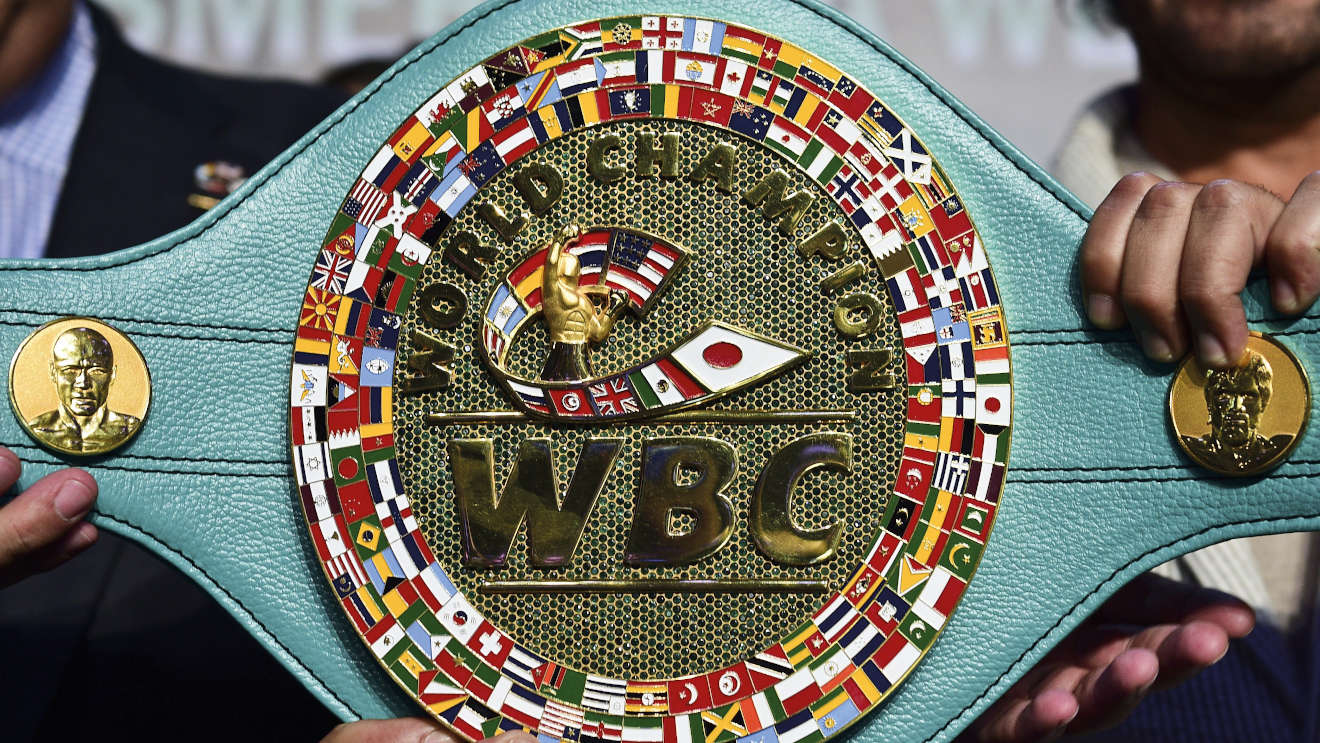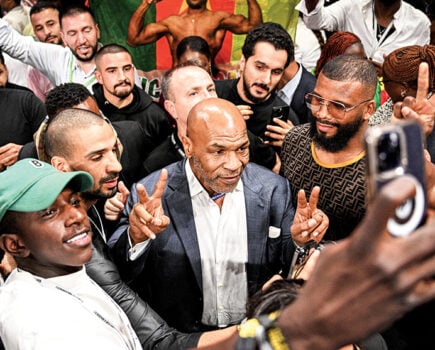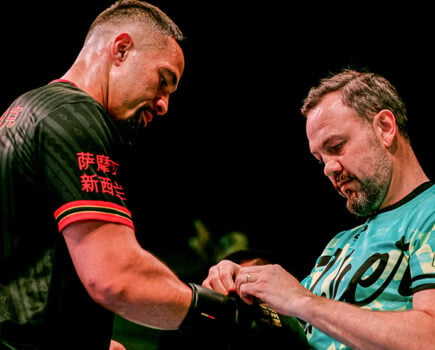History
THOUGH not the oldest sanctioning body, one can make a strong argument that the World Boxing Council has a voice and character significantly louder and more recognisable than any of the other organisations.
The famous green belt is the often the belt that fighters target. In the 1970s, Adidas sponsored the title and created the iconic green design of the belt that remains familiar today.
The WBC began in 1963. Mexico’s then-President, Adolfo Lopez Mateos, a boxer in his youth, grew concerned that Mexican boxers were not getting the opportunities to fight for the world title. His motives were not as cynical as the modern day phenomenon of creating new titles purely for monetary gain, but the fractured nature of world championships can be traced back to the arrival of the WBC coming hot on the heels of the WBA the year before.
Mateos sponsored a boxing convention in Mexico City and invited major boxing authorities from all over the world to attend on February 14, 1963. The arrival of the WBC was welcomed and initially consisted of 11 countries: USA, UK, Argentina, France, Mexico, Philippines, Panama, Chile, Peru, Venezuela and Brazil. In 2020, the organisation is recognised in 166 countries.
Initially, boxers were presented with a globe trophy, before it changed to a black leather and satin belt at the end of the sixties. By the time Jose Sulaiman took charge of the sanctioning body in December 1975, the green belt was growing in prominence.
Sulaiman can be credited – or blamed, depending on your point of view – for world championship fights being reduced from 15 to 12 rounds, day-before weigh-ins, thumb-attached gloves and the growth to the 17 weight classes that we know today.
Jose’s son, Mauricio, [pictured with the WBC middleweight title below] took charge of the WBC in 2014 following the death of his father. Jose Sulaiman was inducted into the International Boxing Hall of Fame in 2007 and his huge impact on the sport should never be forgotten.
Mauricio, a man with boxing in his blood, has followed in his father’s footsteps and deserves respect for tirelessly striving to improve the safety of the sport and providing significant financial support to charities and ex-boxers.

Titles
THE WBC pride themselves on their integrity yet their galling habit of creating belts for any occasion dilutes the importance of what they were trying to achieve when they were founded in 1963.
Though the WBA lead the way, by some distance, as the worst offenders when it comes to multiple titles, the WBC have introduced needless championships that do nothing for the sport. The most recent invention, the Franchise championship, is perhaps the most infuriating which sees established champions ‘promoted’ to a level that seemingly allows them to do as they please, ignore mandatory commitments, yet retain recognition with the WBC.
That two of the WBC’s most decorated champions – Saul “Canelo” Alvarez and Vasyl Lomachenko – were among the first to be elevated to Franchise champion only heightened suspicions that the new title was designed only to offer favours to the richest and most powerful.
Try as he might, Mauricio has subsequently struggled to justify the creation of such nonsense.
The WBC should also be called up on their use of the ‘Interim’ title. Though its introduction was understandable – when a champion was injured or unable to fight – its use when there is no interruption to a champion’s reign is simply ridiculous. A recent example was the situation at heavyweight when Tyson Fury dethroned Deontay Wilder in February while an Interim championship bout was scheduled for two months later between Dillian Whyte and Alexander Povetkin. In short, if an ‘Interim’ champion – and this is not a problem exclusive to the WBC – exists alongside an active and established champion, it only creates avoidable confusion.
The Silver title is another offender. Though Sulaiman has always insisted that this belt is merely the prize for elimination bouts and should not be confused with a world title, its existence is far from essential.
Sulaiman is adamant that the reason for the creation of lesser belts – that mandatory contenders promoted to Silver or Interim status allows them to command a greater share of the purse when they eventually challenge for the real title – should separate the WBC from bodies like the WBA who, despite promises to the contrary, have done little to match their various champions against each other.
However, the WBC continue to manufacture lavish belts for occasions guaranteed to generate attention; perhaps the most notorious was the YouTube belt that Jake Paul and others have been seen brandishing. Of course, there can be no way this can be mistaken for anything like a bona-fide championship but its existence in turn triggers the eternal question: What is the point? Marginally less offensive was expensive belts created for fights like Floyd Mayweather-Conor McGregor. Though the WBC’s desire to be attached to such events is understandable given the photo and marketing opportunities, their insistence on gate-crashing such tasteless parties does little for their quest for universal respect.
Rankings
BY rating 40 fighters in each division, the WBC’s rankings are the most thorough of the four main sanctioning bodies and the process in which they are formulated is worthy of praise.
At their annual convention, fighters and their representatives are invited along to make their case for moving up the rankings. The whole procedure is completely transparent and the WBC’s rakings committee will discuss each case, explaining their reasons for lifting or dropping a fighter. Though it is not a fool-proof method, the WBC cannot be accused of shying away from justifying any questionable decisions.
“We have members from all over the world who work on the monthly ratings every single day,” Sulaiman told Boxing News. “It’s very clean and we work hard to ensure the fighters worthy of higher rankings are given their chance. I feel very comfortable with our rankings and our committee – we’re always conscious to educate ourselves on the form of fighters from all over the world.”
Boxing News was present at the 2016 convention in Miami. It was a surprise to see Jessie Vargas jump up three places in the welterweight rankings after his management team went to great lengths to report their fighter’s charity work. Sulaiman later insisted, when asked by BN, that Vargas’ improved ranking was only a consequence of his form in the ring and that fighters’ promoters and managers act like ‘salesmen’ to enhance their overall case. On this occasion, it worked.
Mauricio Sulaiman, to his great credit, is always available to answer any queries the media or fighters may have on their rankings and the organisation’s policies. Unlike other sanctioning body heads, he has never once deflected a difficult question and goes out of his way to ensure the WBC’s voice is heard. A telling example was at a meeting with the media in London in October 2018 when he invited suggestions on how the WBC could be improved and listened carefully – while taking notes – to the views and concerns of all in attendance.
Drugs
THE WBC made huge strides when they introduced their ‘Clean Boxing Program’ in 2016. The premise was simple; no boxer could be ranked in their Top 15 – and therefore be eligible to fight for their titles – unless they signed up for year-round random testing from the Voluntary Anti-Doping Association (VADA).
As anti-drug messaging goes it was a strong one. Several top fighters were removed from the WBC’s rankings for failing to comply yet the battle the organisation faced intensified in the face of Canelo Alvarez testing positive for clenbuterol in 2018. The Mexican – in the eyes of many fans – should have been made an example of. The WBC led the way in investigating the superstar and approved the six-month ban he subsequently received. Six months, though, was deemed lenient by most observers.
The WBC insisted their investigations included examining the produce of Mexican restaurants where Alvarez had eaten prior to the failed test and were satisfied that contaminated meat ingestion was the reason why the banned substance had appeared in his system.
“I give Mauricio Sulaiman a great deal of credit for implementing the Clean Boxing Program with VADA testing for the WBC but when it comes to speaking on the merits of particular cases, whether it’s Alexander Povetkin [who was removed from and then returned to the WBC rankings after a series of failed tests] or Canelo Alvarez, my sense is that he speaks from the heart rather than logic,” leading boxing writer and anti-drugs campaigner Thomas Hauser told Boxing News.
It should be noted that Hauser ultimately felt that Alvarez’s punishment was significant enough but the WBC came under fire last year when they announced they were to adopt some leniency when it came to the issue of clenbuterol under new rules from the World Anti-Doping Agency (WADA). In essence, the new rule meant that any athlete testing positive for traces of clenbuterol would not face punishment if the levels were so small that meat ingestion was the likeliest, but not only, potential cause.
Important to note that this was WADA – and not the WBC – who introduced the new permitted threshold but, nonetheless, Mexican fighters like Julio Cesar Martinez and Rey Vargas failing tests, only to then be permitted to fight, left a bitter taste in the mouths of many.
The WBC do not have an easy task when trying to remove drugs from the sport yet they’re one of the few organisations with the power and inclination to really make a difference. Though the cases of Martinez, Vargas and Alvarez are open to debate, there have been other fighters – like Povetkin, for example – whose defence against drug charges was non-existent. Should the Russian have been banned for life or a significant length of time by the WBC, it would send out exactly the message sanctioning bodies should be sending out.
Last year’s WADA ruling did not come without justification. Yet the bottom line that all athletes must take complete responsibility for banned substances being in their bodies would go a long way to eradicating the widespread problem; the more loopholes there are, the easier it is to cheat. The harsh measures have to start somewhere and the WBC – the leading organisation for instigating change for the better – taking the lead here would do wonders for their reputation and the sport’s.






